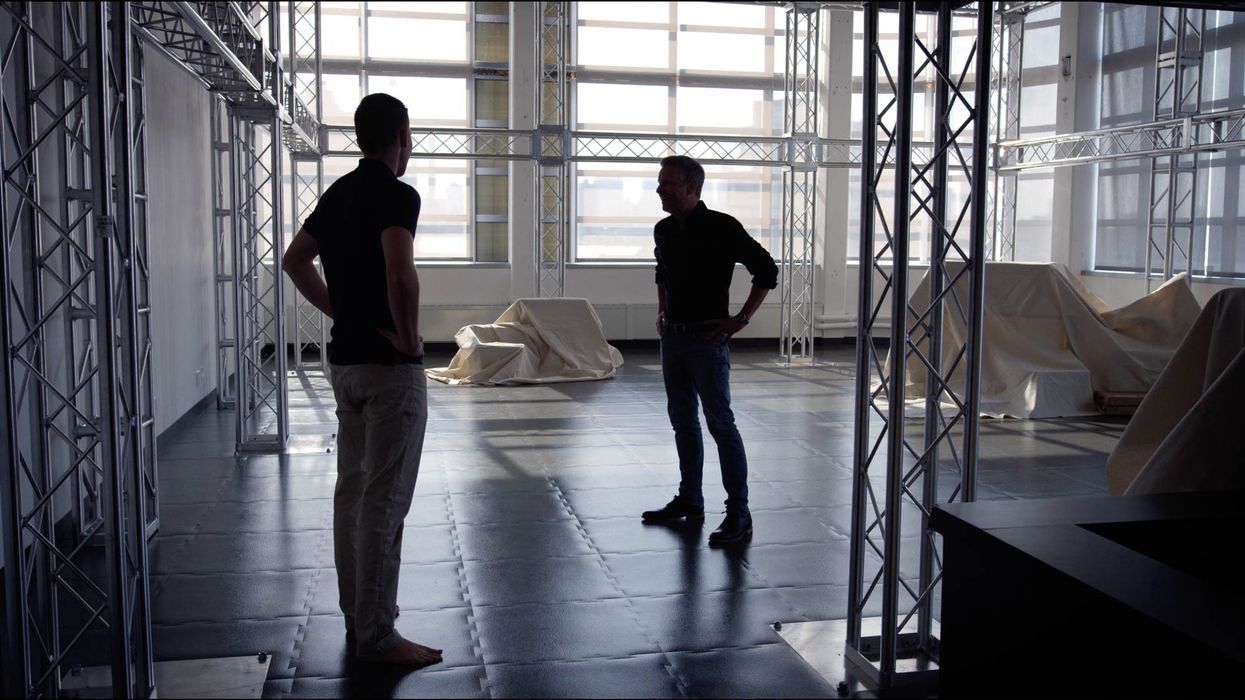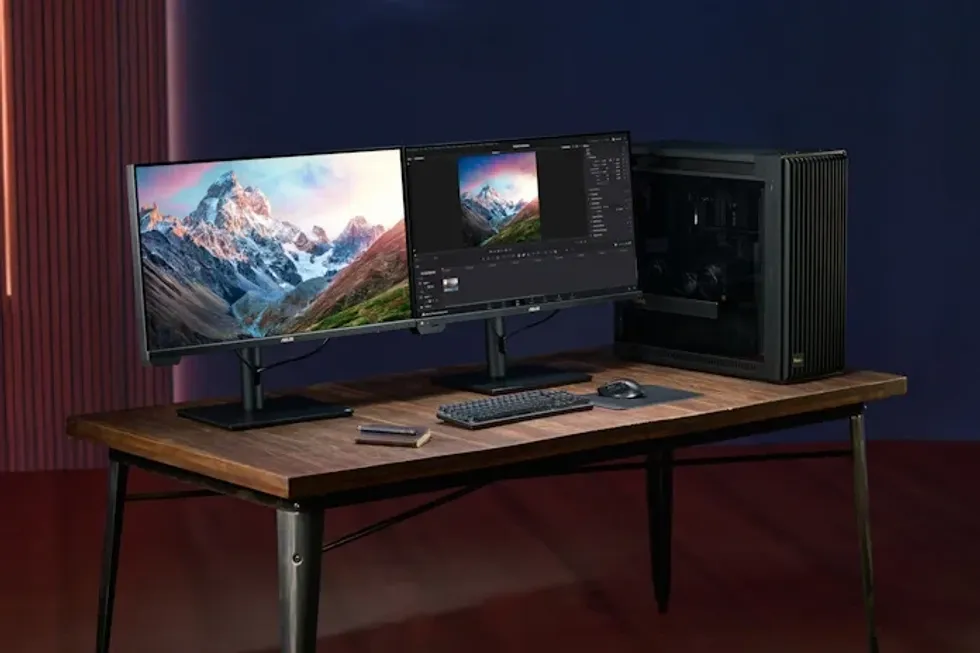How to Work with the Film Industry's Sharks, Narcissists, and Sociopaths (and Survive)
Does it seem like the film industry is less trustworthy than other industries? Well, learning to work with honest business types and con artists alike is something everyone should prepare for.

The stereotype of the "Hollywood lawyer" and the "predatory producer" and "untrustworthy Hollywood types" are all well known both outside and inside the film industry. It's a common trope in movies and TV to be careful when getting tangled up in Hollywood (which is ironic since movies and TV are made by the same "Hollywood" they warn against), and it's born out again and again by stories of deals gone wrong, accounting deceptions, and old friendships betrayed.
Now in my third decade working in movies, I'm not convinced there are more untrustworthy people in Hollywood than in other fields (there are plenty of dangerous people working everywhere), but I think there are specific reasons that make them more complicated to deal with within entertainment.
I had a friend in my 20s who always dated terrible, terrible people who just didn't treat him well. I remember so clearly when it finally hit him "Oh, it's not that I attract terrible people, it's that I put up with them." Terrible, toxic people are just out in the world actively looking for people to prey on. They keep trying every new person who comes along, and many people have one chat with them and are like "no thank you." But if you ignore the flags and return their phone calls, you can get sucked into nightmare relationships that waste years of your life because you just don't see the signs accurately.
"The film industry sometimes moves more quickly than the speed of lawyers and is notorious for under-documenting certain deals this is the industry."
Business is exactly that same way; you'll have meetings and opportunities to collaborate with a plethora of people, and it's who you choose to engage with that matters. I've worked with many people in my career that, after the collaborations ended, people were like, "Why did you work with that guy? We all knew in film school he never delivered on what he promised." But I just didn't see it and was blinded by talent or skill and willing to put up with missed deadlines or failed promises in the hope that the project would come together.
I want desperately to blame this on the midwest, where I grew up, and say, "Well, folks are nicer there," and maybe there is some of that. But I also have friends from the midwest who have dog-level abilities to sniff out a good person from a bad within seconds of meeting them. Who will walk out of a meeting with a possible collaborator and say "they just don't feel right." Learning to spot difficult or troubling collaborators is a skill I've had to deliberately practice and research since it isn't one that comes naturally to me, and I've realized some things that I thought would be helpful to others as they embark on their filmmaking journeys.
So, why exactly does it seem like there are so many sociopaths in the film industry?
We're willing to put up with it
Every film project feels like fantasy until it happens. There is always a bit of pure will to make a thing come into the world. So, we've gotten used to things taking longer and feeling more "nebulous" at the start as things come together. More "fantastical." It's just part of movies.
When I discuss business terms and deals with my friends in other industries they think some of the things we do are insane. The idea that you might spend several years trying to get a movie financed without a single win telling you to keep going is crazy to most people outside of movies. In tech, you build a thing—if it works, great, if not, trash it and build a new thing—and keep doing that over and over. In film you'll regularly have a project that takes 3 years to find the right producer, which is an eternity to folks in other industries who would never waste 3 years on a project that didn't bring them any rewards or returns.
So, it is frankly just harder to see the difference between a possible producer/financier/client who has a real potential of creating interesting work with you and a total bullshit artist, because they are both so similar in the start. It's a very fine distinction.
There are some that are obvious shams from the start. A friend once asked me to meet this possible "investment consultant" who has worked out an "international banking scheme" where you put up 10% of the budget for your project and he leveraged that to provide the full budget of your project. He seemed like an obvious con-man, and how the process worked made no sense, but I was curious what lunch with a con man was like so I went.
In truth, it wasn't that wildly different from a lot of Hollywood lunches and meetings. It was obvious he was a con-man (and his discussion of the money to be made in Mexican railroad bonds sealed the deal), but it sounded an awful lot like a bunch of client meetings I've had that actually have gone places. He bragged about the party thrown by Maxim magazine he was invited to that weekend and offered to bring me along. He talked about past happy investors. Con artists work hard to sound like normal people, and sounding like a producer or investor isn't that difficult.
We are more like pirates than like IBM
The other major reason that sociopaths, narcissists, and con artists appear more often in the film industry is movies are more like modern-day pirates than we are like people with "normal" jobs. If you work at BMW or IBM for decades, you meet new people, sure, but most of the people you work with are co-workers and clients you know for years at a time. You develop new business relationships slowly and there is a huge vetted network of overlapping people to help evaluate each other.
Film projects are coming together through big motley crews of people over and over again, starting fresh each time. Sure, you might run into some folks you know, but every new show or movie or gig is a whole new rodeo of people, and the film industry is big enough that it's entirely possible you might meet someone new and have no overlap with them at all.
This makes it easier for untrustworthy people to slip in through the cracks than in other industries. I've only ever had a client not pay on a project twice in all my years of film, but both times my friends outside film asked me why I didn't see it coming. "Weren't there warning signs?" But in truth, I have had many, many clients who I just met, who didn't know anyone in common with me, where we worked together and they paid me promptly with no issues. Nothing on the clients who didn't pay really would've flagged them as different.
So what do you do to overcome it? I have 2 main strategies you can use to be more careful than I was when I was just starting out.
"It can be hard to tell if they are being sketchy in a "normal producer" way...or a "narcissistic con artist" kind of way."
Talk over deals and partnerships with more people outside the film industry.
I didn't originally spend time talking about deals with my friends outside film because I thought "they wouldn't get it." But honestly, they do. The same things that are red flags in dating or real estate are red flags in film. If you are talking about working with producers and they are being a little sketchy, it can be hard to tell if they are being sketchy in a "normal producer" way (projects take a while to come together) or a "narcissistic con artist" kind of way. Talking with your friends that work outside of the film industry can likely offer a lot more insight than you think.
Cultivating a circle of those friends you can meet with regularly is a vital method for getting perspective on the teams you end up building. We like to think our industry is special and different, but there are parallels to other industries that are worth paying attention to, and honestly...human behavior is still human behavior. Getting an outside perspective here is huge. I personally had a weekly breakfast meeting with a group of business friends and the insights gained there were huge.
Focus more on paperwork and documentation
The film industry sometimes moves more quickly than the speed of lawyers and is notorious for under-documenting certain deals this is the industry—after all, it invented the "deal memo." But slow down and focus on documenting deals and relationships. Also, rely on the expertise of a good entertainment lawyer. It has made my life nothing but better and I don't feel like I've missed out on any opportunities by not rushing things.
Working with a dedicated entertainment lawyer is especially important because they'll understand the norms of how the film industry generally works and what accepted business practices are. Thus, when a project has red flags or other issues that people should be aware of, you can catch them earlier.
Years ago, I entered a contest called Thunder Funder with a project I was pushing at the time, La American Femme. I won! It was very exciting. There was already a huge red flag by the time I won, though; the deal originally announced was $12 million for 12 indies but had changed to only $100K for 2 indies. But it was $100K as part of our investment pool, so I was willing to keep talking, to get any money attached to the project.
To be clear, I had already directed a feature film (Angel's Perch) at this point. I had founded and run a production company that had grown to millions of dollars a year in billings. I had some business experience behind me. But I really wanted to get this movie made and I was getting impatient on figuring out how to make that happen, so I was willing to put up with the deal changing.
Then I showed the contract to my lawyer who told me it was crazy. Completely non-standard and not something I should consider. It wouldn't really offer me any profits at all if the movie sold. However, I just wanted to get the movie made, no matter what. So against the advice of my lawyer, I signed and went out to hire a casting director, with the signed agreement from Thunder Funder that we would split that expense 50/50. I had it in writing, in signed contracts. I hired a casting director to start attaching names to the project. Everyone can see where this goes: Thunder disappeared, never paid their half of the casting director fee, and I eventually had to pay the whole thing, along with my lawyer fees, and never saw a penny from them. The project ended up further behind, slowed down, and I ended up wasting thousands of dollars over a deal that people tried to talk me out of.
I was distorted by my passion for getting the project made no matter what, but my lawyer was right, and I should've listened. A bad deal is a bad deal, and it's often a sign of bad faith. I should've known, in fact, during my first meeting with Thunder when the CEO stopped by the meeting, said hello, and left. Any real CEO would want to get to know the people they are investing in. I should've known when my lawyer flagged the deal as being one to walk away from. I should've known when the deal changed from the advertised contest to a much smaller number. But I wanted to make that movie so badly that I overlooked it all.
So, I went out and made another project about the struggles of creative types to figure out navigating complicated business deals. We want to do creative things, and we have to navigate shark-infested waters to do it.
Our new film, Salty Pirate, is about creative type designers starting a business and learning what that means the hard way. It's on Ficto, Vimeo VOD, and very soon, Amazon Prime. You can learn more at SaltyPirate.tv.
What's Next? 9 Essentials to Navigating a Career in Hollywood!
A multi-Emmy-winning filmmaker Shane Stanley shares some tips on how to build a solid reputation and assure longevity working in the entertainment industry.




















